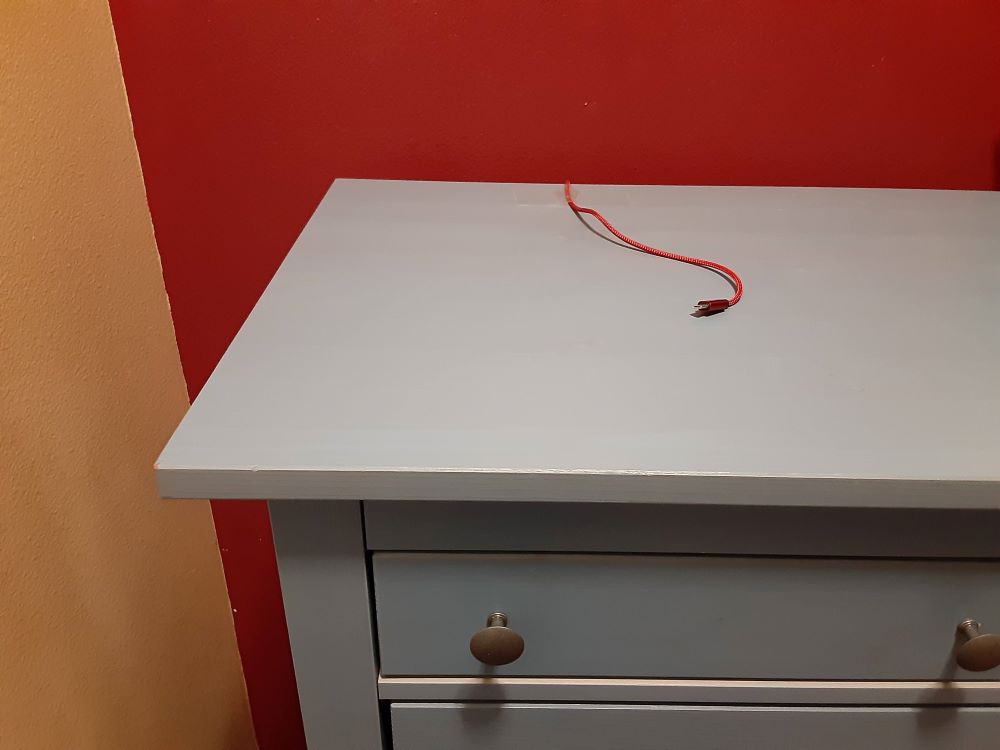
If you’re one of the few people who never uses their phone in bed, congratulations. Feel free to keep reading if you’d like to reinforce that habit, but otherwise, you’re good to go.
But if you’re like most people, and you do sometimes use your smartphone in bed, please read on. Using your phone in bed is actively harming your health, your happiness, your productivity, and your creativity. It’s a bad habit that needs to be dropped.
The good news is that there are some simple strategies that make it easy stop using your phone in bed. But first, the harms.
The Harms of Using Your Phone in Bed
What happens when you use your phone right before trying to fall asleep?
Well, for one, the high-energy blue light emitted by the screen disrupts melatonin production, making it harder to fall asleep and making it harder to get into deep sleep.1 And even if your phone is set to reduce that blue light at night, it’s still not a good idea to stare at a bright screen. Plus, using your phone at bedtime shakes your mental snow globe, at a time when you really need relaxation, not more stimulation.
For these reasons, it comes as no surprise that studies have found that “phone use during bed-time leads to a significantly worse sleep quality,”2 is “positively associated with insomnia,”3 and “the more time spent on a mobile device before sleeping” the longer it takes people to fall asleep.4
Poor and insufficient sleep contributes to a multitude of problems. It decreases your willpower and your ability to focus.1 It inhibits learning and reduces your working memory.5 And it is associated with increased levels of depression, anxiety, and stress.4
Okay, so you shouldn’t use your phone at bedtime. But what about using it first thing in the morning, right as you’re waking up?
Well, that’s bad too. It’s going to make you less likely to follow your morning self-care routine, setting you up to have a low-energy day. And it’s going to make doing deep work really tough since you’re likely to get stuck in the shallows.
It would be far better to stay in control of where you’re putting your energy and your attention. The inputs from your phone will pull your attention and energy away from the things that matter most. Your phone will prompt you to start reacting at a time when you should be creating.6
So on both ends of bedtime, it’s a bad idea to use your phone.
4 Strategies to Stop Using Your Phone in Bed
So here’s what you don’t want to do:
Keep your phone active and on your nightstand, and then rely on brute-force willpower to resist the temptation to use it in bed.
No, no, no.
Right before bed and right after you wake up are times when your willpower levels are at their lowest, so you can’t rely on self-control to avoid using your phone. As always, you’ll want to employ smart willpower strategies to make doing the right thing easier.
1. Put it in airplane mode.
This helps on two fronts. First, it prevents your phone from buzzing at you with incoming messages and notifications. That takes away the external pull of the phone. Second, it creates a small obstacle between the act of compulsively grabbing your phone and actually getting to use it. (See also: The 20 Second Rule) This helps with the internal pull of the phone by giving you a chance to stop and reverse course before you get sucked in.
So put your phone in airplane mode well before bedtime and don’t come out of airplane mode until long after you’ve woken up. (Note: At first, this is difficult to remember, so set a recurring daily alarm for, say 9pm, as a reminder to go into airplane mode.)
2. Put the charger on the other side of the room.
This is my favorite strategy. Most people charge their phones at night, and the most common location people use for their charger is their nightstand. The problem with this should now be obvious: It’s right next to the bed!
So instead, move the charger to the other side of the room. For me, that’s on the dresser. And it’s not just casually set up over there, it’s taped in place. The charger cord is firmly attached to the top of the dresser, so it’s not going anywhere. I’m committed.

When I go to bed, I plug my phone in there, and when my alarm goes off, I have to get out of bed and walk across the room to turn it off. (This has the side-benefit of making me massively less likely to hit “snooze,” since I’m already up.) From there, I take my phone to my office, set it next to my meditation chair, and proceed with my morning routine.
3. Replace the phone with something better.
This one is optional. I don’t feel a need to keep anything on my nightstand because when I go to bed, my only purpose is to sleep. Many people, however, like to have something to do as they settle into bed. So if you’re in that camp, replace your phone with something better, such as a book or a gratitude journal. That way, you’ll be swapping out an unhealthy habit for a healthy one.
4. Make it a rule.
The one approach to behavioral change I’ve seen fail over and over again is vague commitments. So don’t say to yourself, “I’ll try not to use my phone in bed” or “I’m going to use my phone in bed less.”
The 100% commitment approach to behavioral change has a much better track record.
So make a clear rule:
“I will never use my phone in bed.”
1 Walker, Matthew. Why We Sleep: Unlocking the Power of Sleep and Dreams. Scribner, 2018.
2 S. Vhaduri and C. Poellabauer. “Impact of different pre-sleep phone use patterns on sleep quality.” 2018 IEEE 15th International Conference on Wearable and Implantable Body Sensor Networks (BSN). 5 April 2018.
3 Nesdal, Ingrid, et al. “The Association Between Use of Electronic Media in Bed Before Going to Sleep and Insomnia Symptoms, Daytime Sleepiness, Morningness, and Chronotype.” Behavioral Sleep Medicine. 24 Oct 2013.
4 Rowlinson, Alycia. “To investigate the relationship between in-bed mobile phone use, quality of sleep and levels of depression, anxiety and stress in young adults.” Manchester Metropolitan University. 25 Jan 2017.
5 Oakley, Barbara. A Mind for Numbers: How to Excel at Math and Science (Even If You Flunked Algebra). Penguin, 2014.
6 Johnson, Brian. “Creative vs. Reactive.”
